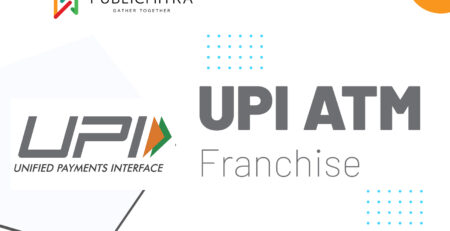Why Investing in a Franchise Model for Cloud Kitchen is Better Than Starting from Scratch
Introduction
The cloud kitchen (or ghost kitchen) industry is booming, driven by the rapid growth of food delivery platforms like Uber Eats, DoorDash, and Zomato. Entrepreneurs looking to enter this space face a critical decision: Should they start an independent cloud kitchen or invest in a franchise model?
While starting from scratch offers creative freedom, a cloud kitchen franchise provides a proven business model, brand recognition, and operational support—key factors for success in a competitive market.
In this article, we’ll explore why investing in a franchise model for cloud kitchen is a smarter choice than building a new brand from the ground up.
1. Proven Business Model & Reduced Risk
Why Reinvent the Wheel?
Starting an independent cloud kitchen means experimenting with menus, pricing, supply chains, and customer acquisition—all of which come with risks. A cloud kitchen franchise, however, offers:
- Tested recipes & operational workflows – Franchisors provide standardized processes that work.
- Established supplier relationships – Better pricing and reliability for ingredients.
- Data-driven decision-making – Franchises leverage existing customer insights to optimize performance.
Lower Failure Rates
Statistics show that franchised businesses have a higher survival rate than independent startups. With a franchise, you avoid common pitfalls like:
- Poor location selection
- Inefficient kitchen layouts
- Unprofitable menu pricing
2. Instant Brand Recognition & Trust
The Power of an Established Brand
Building a new brand requires significant time and marketing investment. A franchise, however, comes with:
- Existing customer trust – People recognize and order from familiar brands.
- Higher discoverability – Franchises rank better on food delivery apps due to existing reviews and ratings.
- Loyal customer base – Returning customers drive consistent revenue.
Marketing & Social Media Advantages
A new cloud kitchen must struggle to gain Instagram followers and online visibility. Franchises benefit from:
- Centralized digital marketing campaigns
- Professional social media management
- Leveraging the parent brand’s followers
3. Operational & Technical Support
Training & Standardized Processes
Running a cloud kitchen involves complex logistics. Franchisors provide:
- Staff training programs
- Inventory management systems
- Kitchen automation tools
Tech & Delivery Platform Integration
Franchises often have pre-negotiated deals with delivery apps, ensuring better commission rates and visibility. They also provide:
- POS and order management systems
- AI-driven demand forecasting
- Customer data analytics
4. Easier Scaling & Expansion
Multi-Brand Opportunities
Many cloud kitchen franchises operate multiple virtual brands from the same location, maximizing kitchen utilization.
Faster Geographic Expansion
With a franchise, expanding to new cities is easier because:
- Site selection is data-backed
- Local marketing strategies are pre-defined
- Supply chain networks are already established
5. Cost Efficiency & Higher Profit Margins
Shared Resources & Bulk Purchasing
Franchisees benefit from:
- Lower ingredient costs (bulk purchasing power)
- Shared cloud kitchen spaces (reducing rental overhead)
- Economies of scale in packaging and logistics
Reduced Customer Acquisition Cost (CAC)
Independent kitchens spend heavily on ads to attract customers. Franchises enjoy:
- Brand-driven organic traffic
- Performance marketing at a larger scale
- Loyalty programs that retain customers
6. Navigating Regulatory & Compliance Challenges
Starting a new cloud kitchen involves:
- Food safety certifications
- Licensing hurdles
- Local regulatory compliance
Franchises simplify this with:
- Pre-approved legal frameworks
- Compliance training
- Ongoing regulatory updates
7. Real-World Success Stories
Cloud Kitchen Franchise Examples
- Kitopi (Dubai-based franchise model)
- Rebel Foods (operates Faasos, Behrouz Biryani)
- Wow! Momo (expanding via franchising)
- Potluckk (Chennai based cloud kitchen) – +91-9790901796
These brands succeeded due to structured processes, strong branding, and scalability—advantages that franchisees inherit.
Conclusion: Why a Cloud Kitchen Franchise is the Smarter Choice
While starting an independent cloud kitchen may seem appealing, the franchise model offers a faster, safer, and more profitable path. With benefits like:
✅ Proven business model
✅ Instant brand recognition
✅ Operational & marketing support
✅ Lower risk & higher scalability
Investing in a cloud kitchen franchise minimizes startup challenges and maximizes growth potential. POTLUCKK offers a franchise for just 2L/-
FAQs
Q: How much does a cloud kitchen franchise cost?
A: Costs vary based on brand and location, but typically range from $5,000 to $10,000, including setup and licensing.
Q: Can I run multiple brands under one cloud kitchen franchise?
A: Yes! Many franchises allow multi-branding, increasing revenue streams from a single kitchen.
Q: Do franchises help with delivery platform partnerships?
A: Absolutely—most franchises have pre-negotiated deals with Uber Eats, DoorDash, and other platforms.
Q: Is a cloud kitchen franchise profitable?
A: With the right location and execution, franchises often see higher profitability due to lower CAC and operational efficiencies.
Final Thoughts
The cloud kitchen industry is competitive, and success depends on speed, efficiency, and brand strength. A franchise provides the blueprint for growth, making it the best choice for entrepreneurs looking to capitalize on the food delivery boom.
By choosing a cloud kitchen franchise, you invest in a ready-made success formula rather than navigating uncertainties alone.












